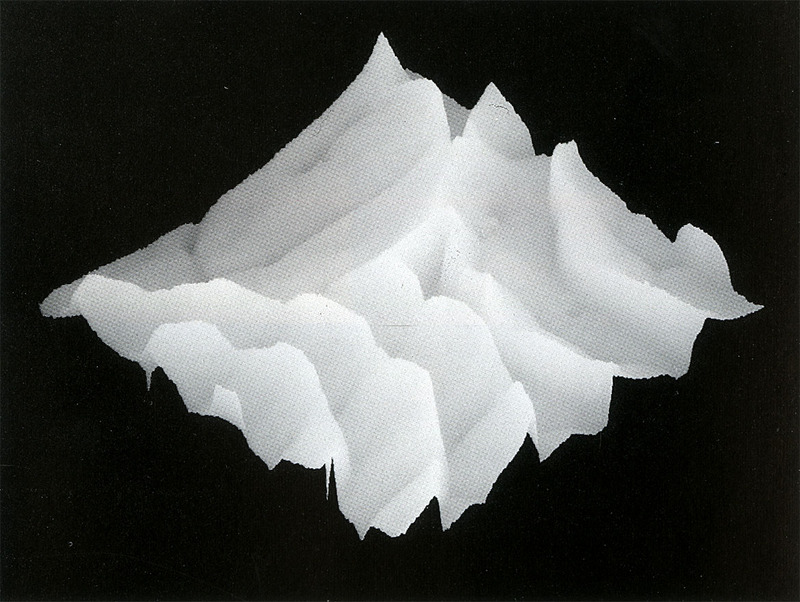C17 - Boundaries of convective flow across waves (BZ)
Title
C17 - Boundaries of convective flow across waves (BZ)
Description
The dynamics of pattern formation reaches a higher level of complexity as soon as convective flow joins diffusion as a transport mechanism. If, e. g., surface forces, as they are caused by gradients in concentration and/ or temperature (mostly induced by evaporation), get off balance, the lower layers of the solution often arrange themselves in surprisingly regular patterns in the millimeter range. The bright and dark lines in the picture mark the boundaries of so—called convection cells, where streams
of the liquid moving in different directions encounter. In these regions the mixing of substances is more pronounced and therefore matter transport is increased, “stimulating” the chemical reaction, as shown in picture C18.
C17 gives an impression of the effects which convection may exert on the Belousov—Zhabotinskii reaction (BZ).
of the liquid moving in different directions encounter. In these regions the mixing of substances is more pronounced and therefore matter transport is increased, “stimulating” the chemical reaction, as shown in picture C18.
C17 gives an impression of the effects which convection may exert on the Belousov—Zhabotinskii reaction (BZ).
Subject
Pattern formation (Physical sciences); Physics; Visualization; Nonlinear Dynamics; Pattern Formation; Chemical Waves; Reaction Diffusion Systems; Nonlinear Waves; Traveling Waves; Chemical Oscillations; Oscillating chemical reactions;
Creator
Müller, Stefan C.
Plesser, Theo
Source
Dynamic Pattern Formation in Chemistry and Mathematics: Aesthetics in the Sciences: Catalogue of an Exhibition
Contributor
Müller, Stefan C; Markus, Mario; Plesser, Theo; Hess, Benno; Max-Planck-Institut für Ernährungsphysiologie Dortmund, West-Germany
Date
1988
Publisher
Laupenmühlen Druck, Bochum
Rights
Format
JPEG
Type
Still Image
Collection
Citation
Müller, Stefan C. and Plesser, Theo, “C17 - Boundaries of convective flow across waves (BZ),” History of the Belousov-Zhabotinsky Reaction, accessed April 20, 2024, https://woosterdigital.org/BZ-history/items/show/219.

